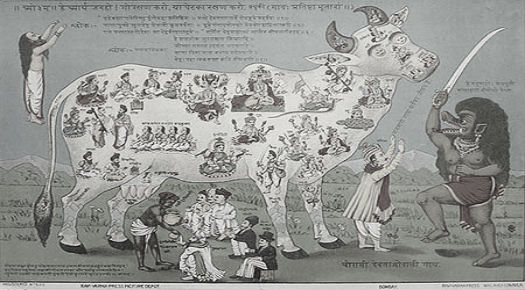
The Hindu religious groups Govansh Raksha Abhiyan (Cow Protection Campaign) and Goraksha Dal Punjab (Cow Protection Organisation of Punjab), who have been spearheading a campaign to ban cow slaughter in India, issued an ultimatum to the Central Government to shut down all slaughterhouses in the country by end of 2014.
In a statement issued in June, the organizations that had assembled at Ramnathi in Goa for a week-long Hindu convention, said if the government does not comply with their demands, they will act in a manner that they feel is appropriate in shutting down all slaughterhouses and the government will be solely responsible for all events that follow.
The leaders of these Hindu groups reminded Prime Minister Narendra Modi, who leads the Hindu nationalist Bharatiya Janata Party (BJP), that he had opposed “Pink Revolution” (promotion of meat export) while campaigning for the general elections this year and criticized the fact that the revolution has continued despite Modi having coming to power.
Another Hindu group JanJagruti Samiti (People’s Awakening Committee) asked the government to pass a stringent law that will punish those found guilty of cow slaughter.
Most Hindus considered the cow a sacred animal, and the demand for banning cow slaughter has some support from typically liberal Hindus. Digvijay Singh, an Indian parliamentarian who belongs to the more liberal Indian National Congress, said at a press conference on June 24 that he supports the ban wholeheartedly because he is a “good Hindu.” He also went on to trace the history of banning cow slaughter in India.
“In the 1930s, banning of cow slaughter was part of the Congress party's official resolution. In the Mughal regime too, slaughter of cows was banned,” he said, before elaborating how the royal family of Bhopal wants to ban cow slaughter as well.
Singh criticized by Trajana D’Mello, vice president of the Nationalist Congress Party in the state of Goa, saying he should quit politics and become a Hindu seer for having failed to distinguish between religion and legislation.
“You cannot mix your personal religion and beliefs with politics. You have to leave your personal beliefs at home when you are in public life,” said D'Mello.
